Bloodborne: Everything You Need to Know
Whether you're a first-time demon hunter or a series veteran, Tom's Guide has everything you need to know about Bloodborne on PS4.
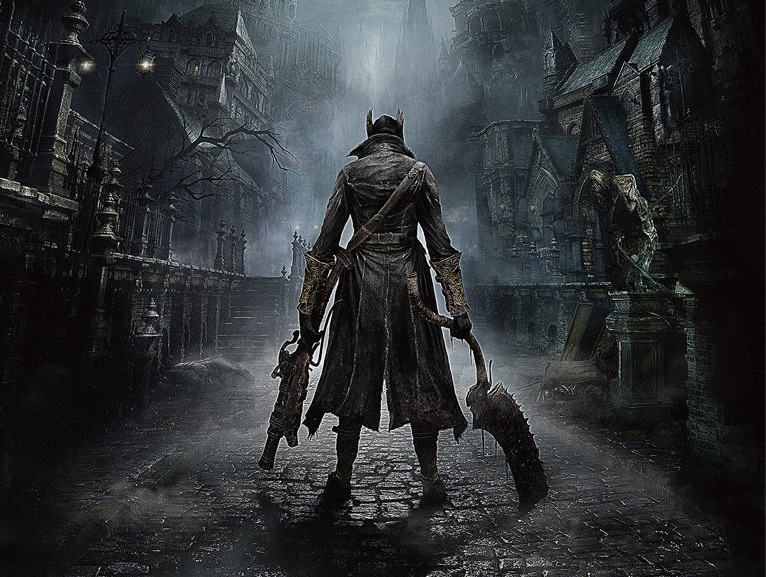
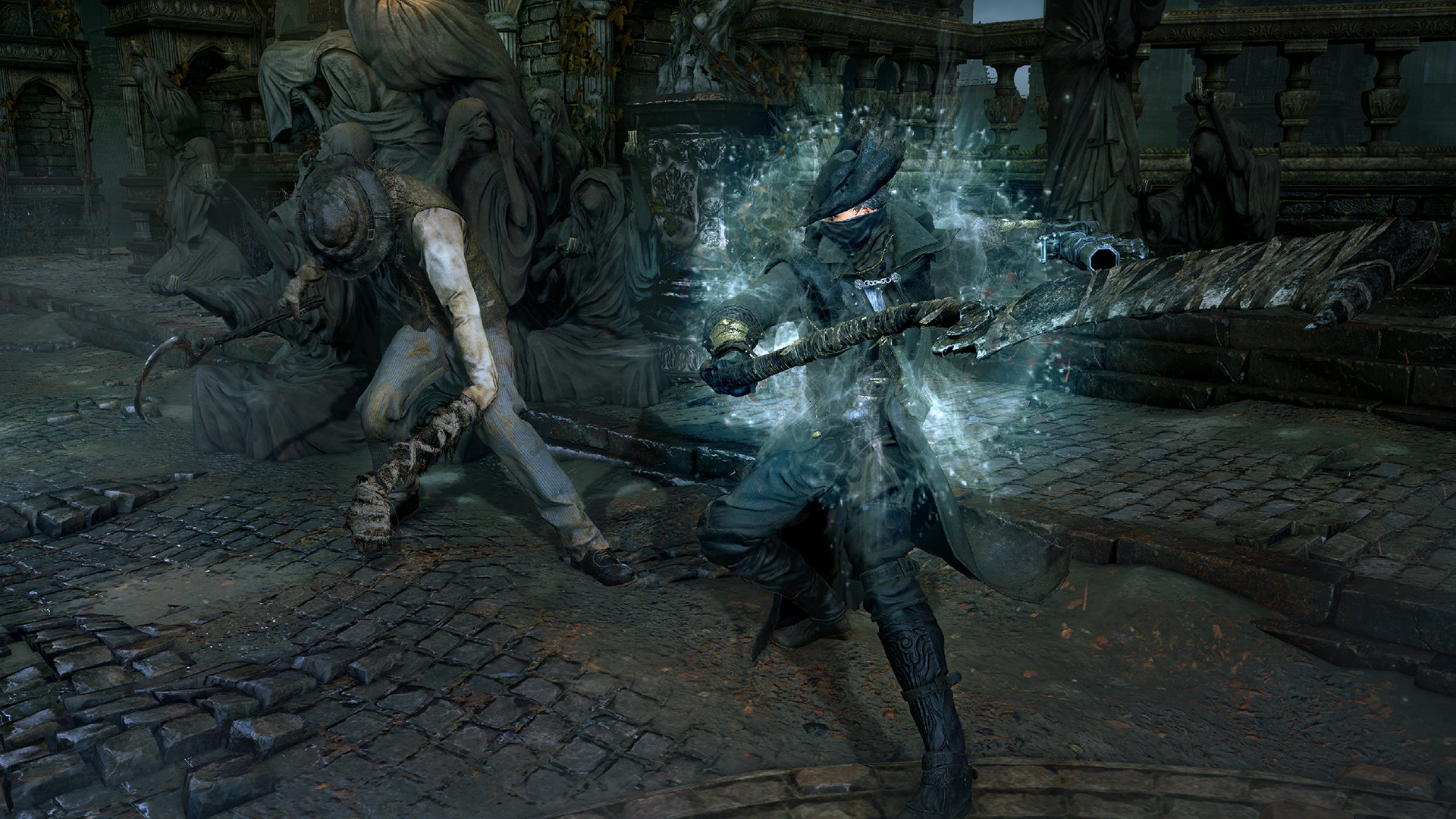
Check out the full Tom's Guide Bloodborne review!
The desolate city of Yharnam is home to Gothic spires, crazed plague victims, demonic undead and just one person who may be able to bring peace to it — you. In Bloodborne, From Software's latest game, you take the role of a demon hunter in a city inspired by Victorian London and do battle with the horrors therein to unravel its mysteries.
In case you haven't been following it, Bloodborne is a highly anticipated PlayStation 4 exclusive action/role-playing game. While you wouldn't know it from the name, it's actually the fourth game in the Souls series, which up until now has included Demon's Souls, Dark Souls and Dark Souls II. The series has been a favorite among gamers since 2009 for its brutal difficulty, haunting worlds and precise combat.
MORE:Most Anticipated Games This Year
If Bloodborne looks intimidating, don't worry; that's by design. If it's anything like the previous Souls games, it should provide a rewarding experience for anyone brave enough to stick it out to the end. Whether you're just jumping into the series for the first time, or need to refresh your memory after Dark Souls II, Tom's Guide has answers to some of questions you'll need to know before you begin.
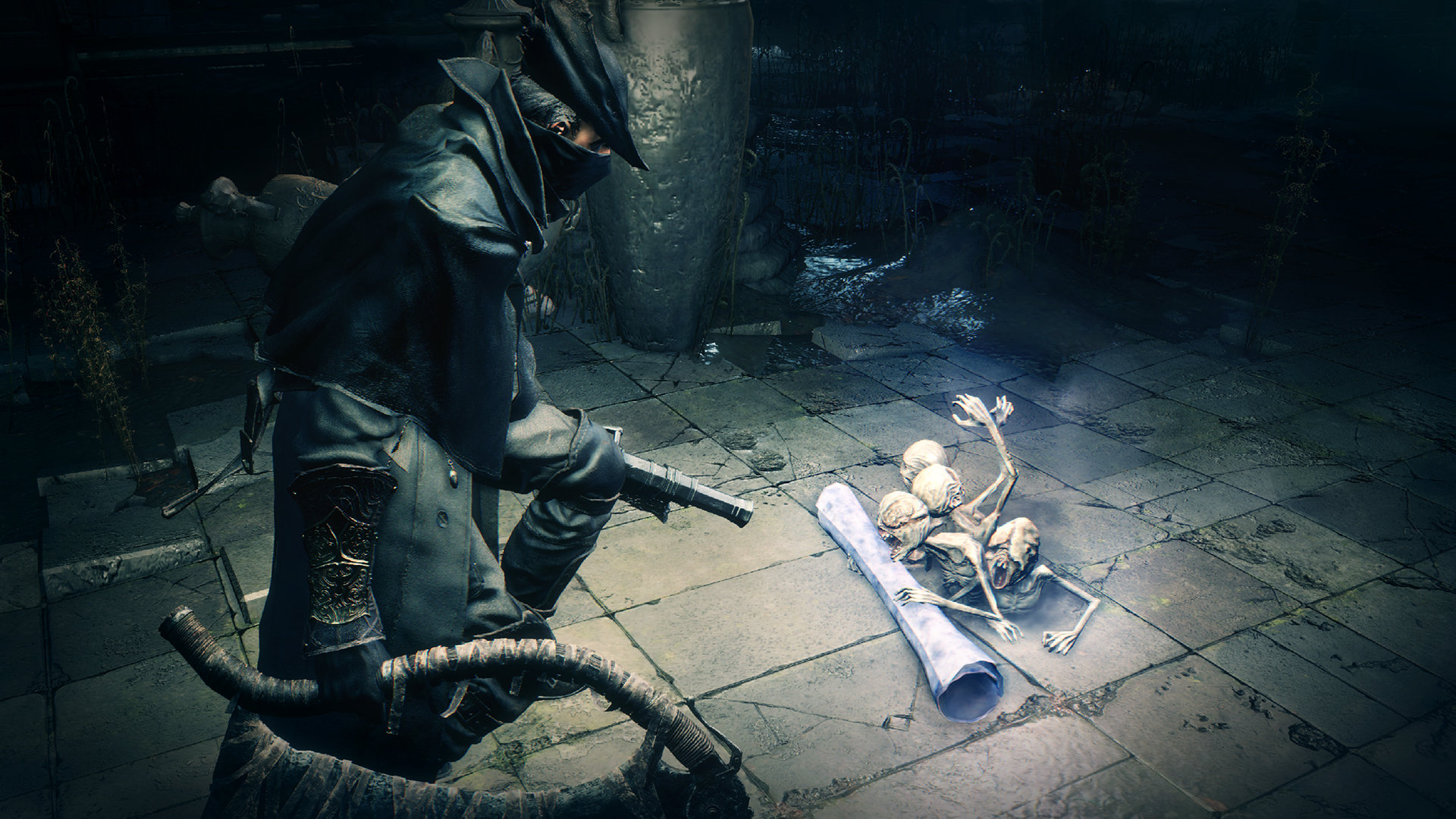
What Is Bloodborne?
Bloodborne is a PS4 action/RPG developed by From Software. In it, you create a unique demon hunter and set off into the cursed city of Yharnam, where the inhabitants are fated to become deadly beasts. As you progress, you'll collect delightfully sinister weapons and armor as well as enemies' blood echoes (called souls in other games). These blood echoes can improve your character statistics, as well as pay for useful items and equipment upgrades.
The game launches on March 24, 2015, and costs $60.
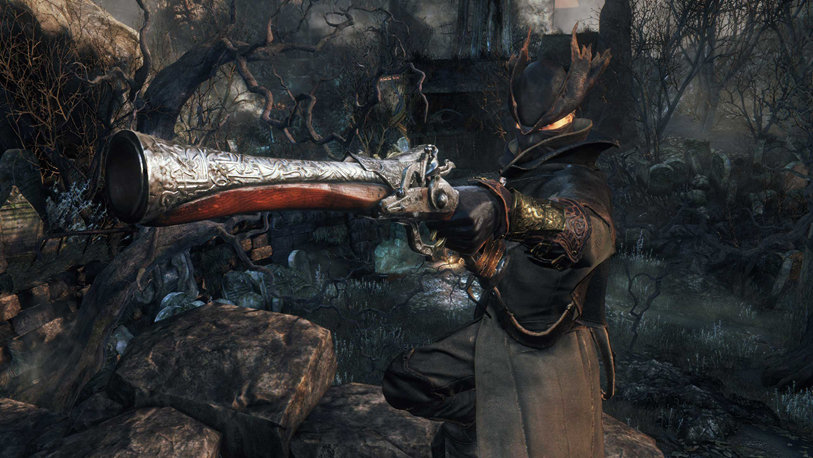
What Makes Bloodborne Different from Other Action/RPGs?
If you've ever played Demon's Souls, Dark Souls or Dark Souls II, you already know the answer to this question. If not, the main difference between Bloodborne and other games in its genre is its difficulty. While most games provide a player with challenges on their route to the end, in the Souls series, the game itself is the challenge.
Generally speaking, the stories are minimalist and do not explicitly tell the player where to go, what to do, or what items they'll need to bring. There are tons of hidden paths to explore and optional objectives to complete, which can make impossible challenges possible. Most enemies can kill you in just a few hits, and bosses can usually do so in just one or two.
The tradeoff is the game's precision. Bloodborne, like other Souls games, gives you complete control over your equipment, your stats, your combat style and the way you progress through the game. Once you fine-tune a playstyle that works for you, you'll quickly discover that even though you'll die — and die often — nothing in the game is as powerful or as persistent as you are.
Bloodborne (and the Souls series in general) is also much darker and more minimalistic than most RPGs, and incorporates significant horror elements. Since death lurks around every corner, each level inculcates a palpable sense of dread. Body horror and grotesque enemies abound, and even beautiful environments, like towering castles and fields of flowers, tend to evoke eeriness and wistfulness rather than relief.
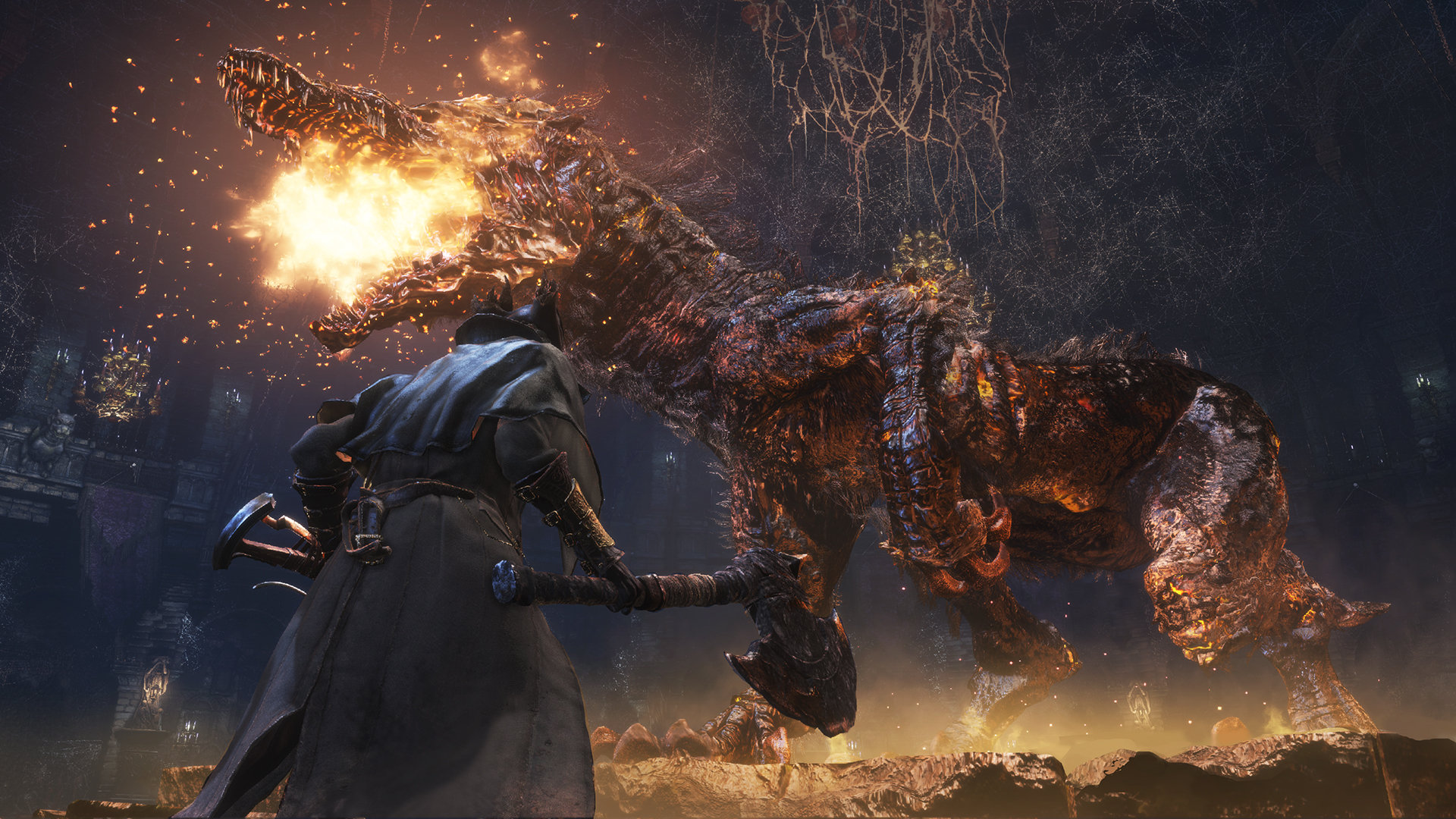
Do I Need to Play Demon's Souls/Dark Souls/Dark Souls II First?
No. While I advocate playing all three of these games because they're fantastic, each one is almost totally standalone, and Bloodborne is no exception. Each Souls game takes place in a different location, features a different cast of characters and offers a different set of challenges, equipment and grotesque enemies. The stories do not relate to one another, except in purposely vague and uncertain allusions. While there is a common narrative thread that binds at least two of the games, it's extremely tenuous, and doesn't have a direct impact on any of their storylines.
Since you don't need to understand the Souls narrative to play Bloodborne, the biggest advantage to playing the previous three games is that you'll be well-equipped to handle its challenging and idiosyncratic gameplay. While each game has its own unique set of challenges, your skills will generally mature over time and stay with you from installment to installment.
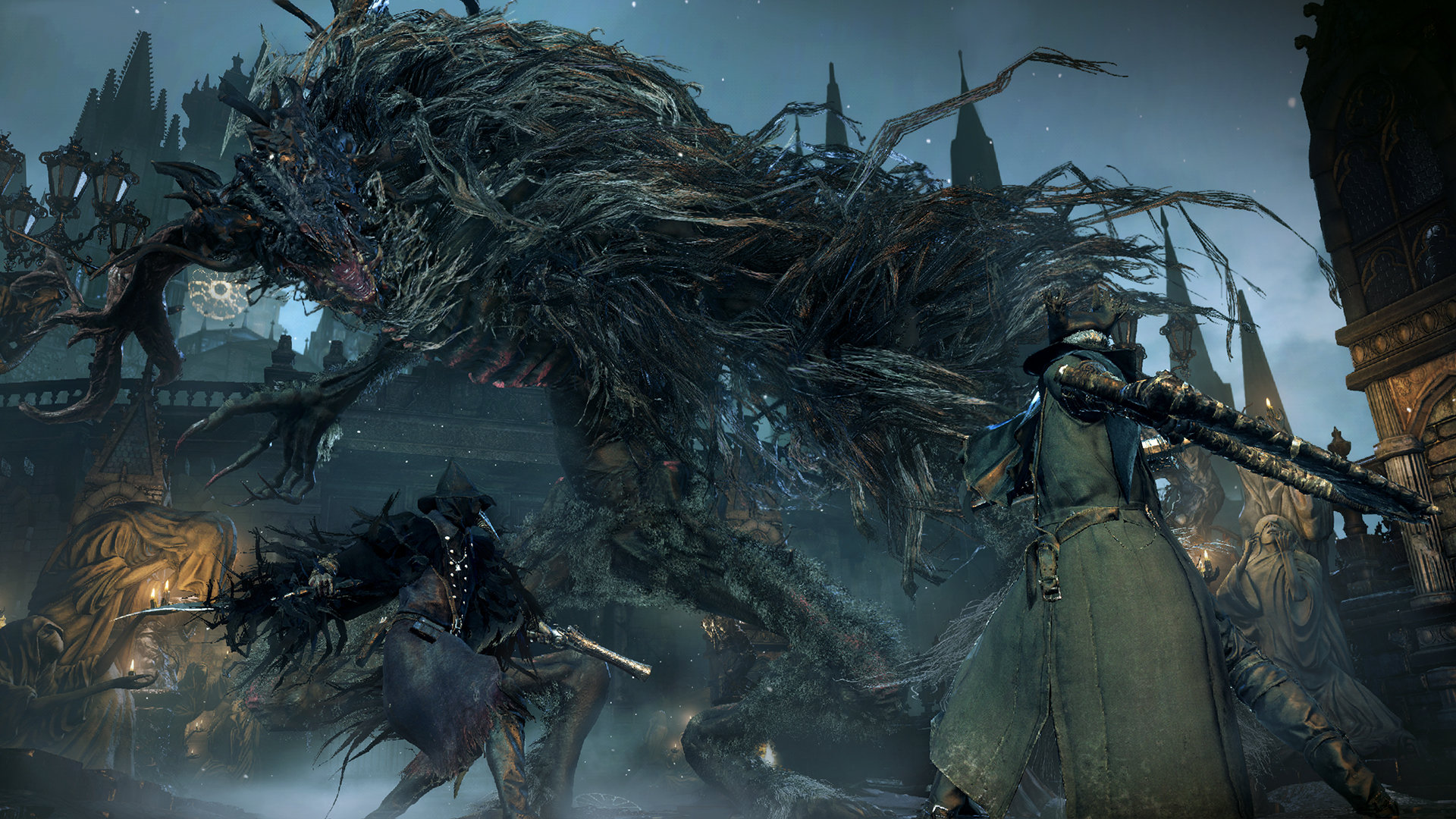
What's New in Bloodborne Compared to the Last Three Games?
The biggest differences between Bloodborne and its predecessors appear to be its neo-Gothic setting and its faster-paced combat. Whereas the first three games took place in medieval fantasy worlds, Bloodborne winds the clock forward a few hundred years to a steampunk world filled with guns and gas lamps.
Since swords and shields are no longer the order of the day, combat hinges instead upon a mixture of unconventional melee weapons (saws, axes, canes, ceremonial blades, etc.) and guns, which range from pistols to blunderbusses.
As a result, combat is much quicker than before. Instead of stopping a devastating attack with a shield, now you'll have to interrupt it with a shotgun blast instead. The game counterbalances this by allowing you a chance to regain your lost health. If you take a hit, counterattacking will restore your hit points for a short window. This should help reward players with excellent timing without penalizing more methodical ones too much.
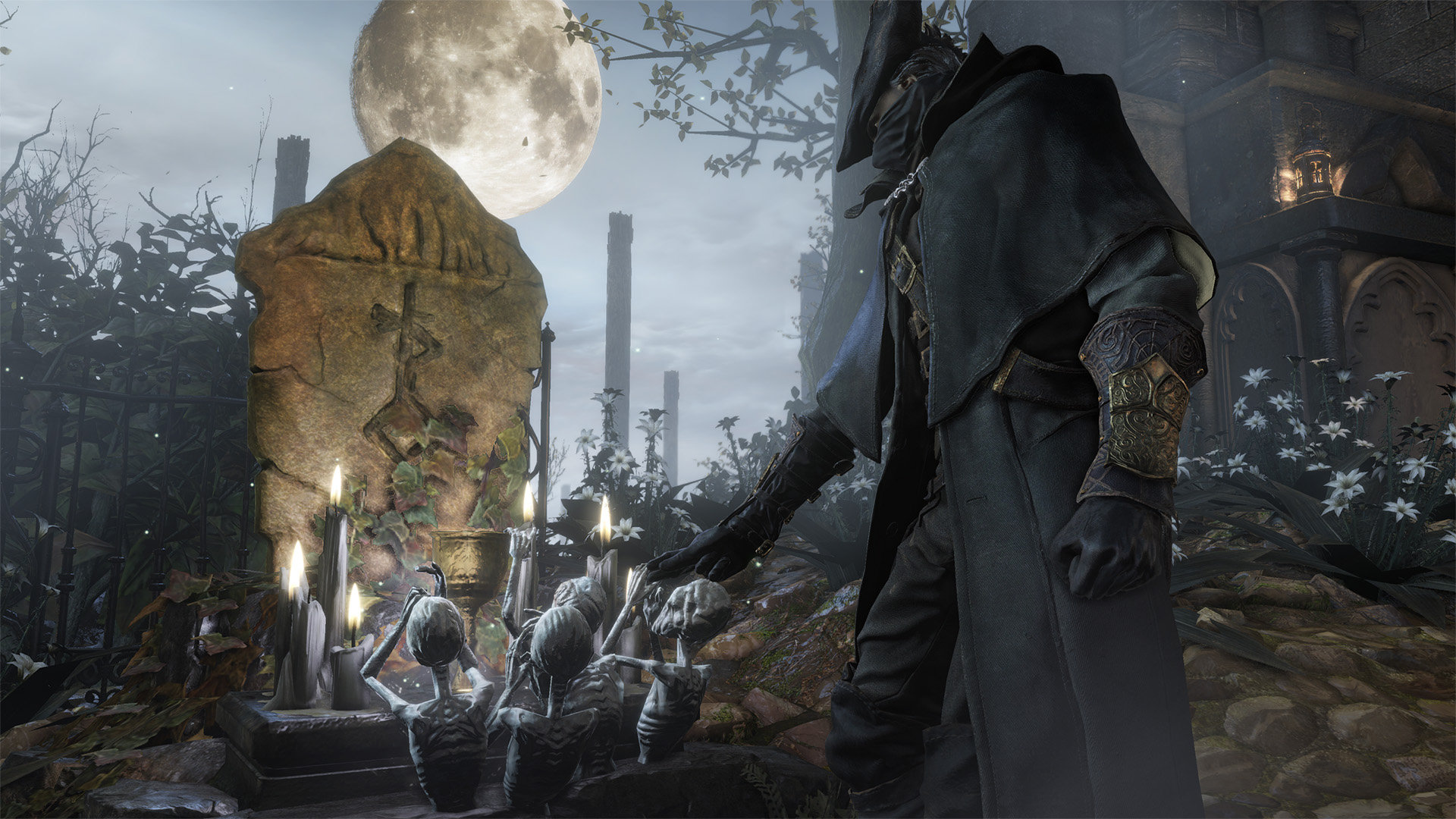
Is Bloodborne an Online Game?
Yes and no. Bloodborne, like the other Souls games, is mostly a single-player game, but carries important online features. Although many hunters can play simultaneously and be tangentially aware of each other, their paths won't cross unless they go out of their way to make it happen.
Most of the game's online features are asynchronous. As you journey through Yharnam, you can leave messages for your fellow travelers, which they can then upvote and downvote based on their usefulness. If you die, you will leave behind a tombstone so that other players can witness your grisly demise, and hopefully learn from it.
There are opportunities to cooperate or compete with other players directly, but they're generally fewer and farther between. By using special items, players can either invade another world to kill the host for fun and profit, or team up with a struggling player to defeat a pernicious boss. In previous Souls games, players could join factions that give rewards for these tasks, and Bloodborne will likely continue that tradition.
Bloodborne also boasts a new feature called Chalice Dungeons: procedurally generated areas that multiple players can explore and share. The Chalice Dungeons will offer special levels, traps, enemies, bosses and equipment. Think of it as Dark Souls meets Diablo.
Also note that to use any of Bloodborne's online features (even just messages), you will need a PlayStation Plus subscription. Previous Souls games on PlayStation systems did not have this constraint.
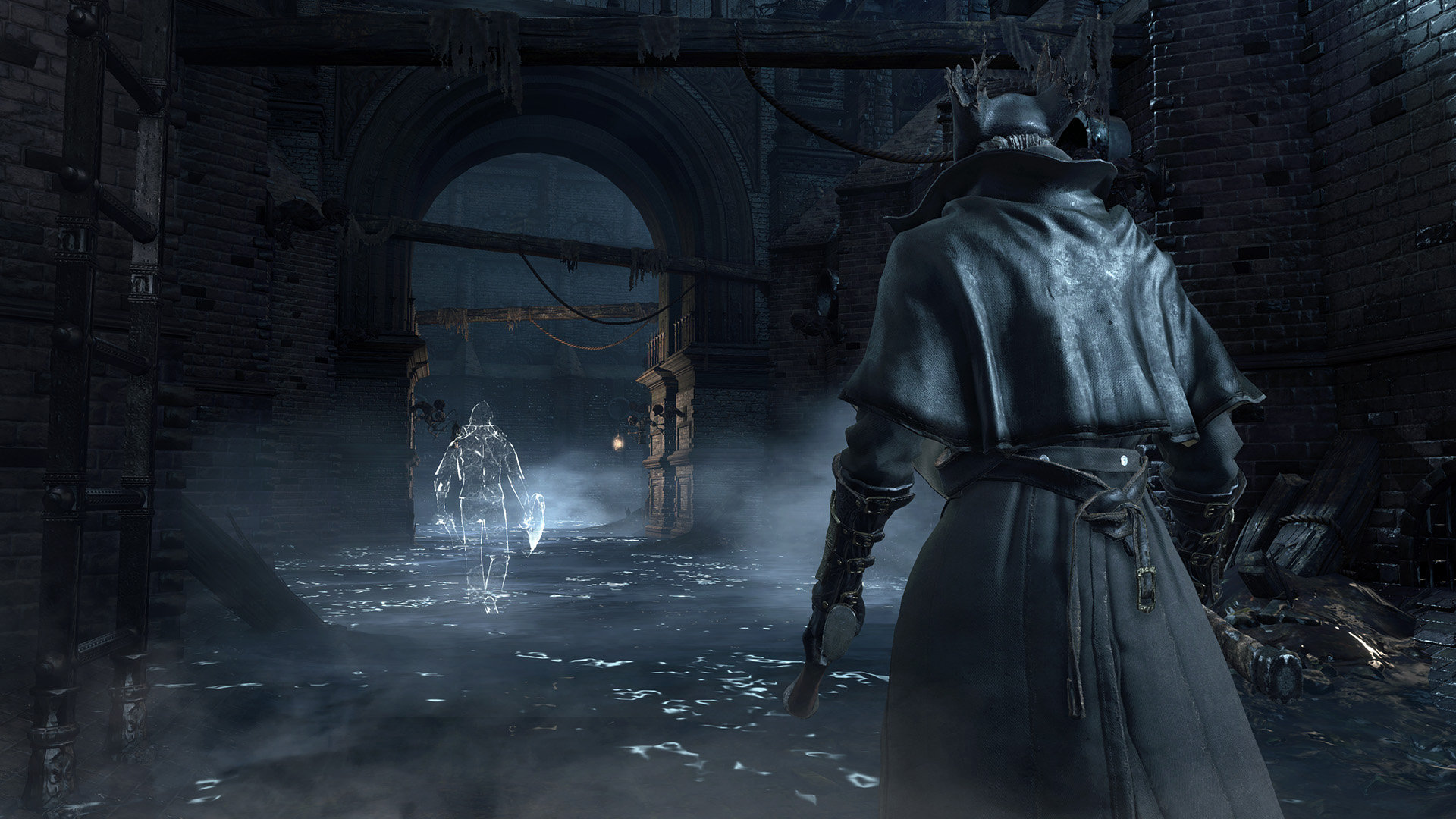
What Are Some General Tips for Bloodborne?
Since Bloodborne hasn't come out yet, it's hard to say exactly how to play it. However, based on what we've seen online and at various gaming expos, one thing is clear: At its core, it's very much a Souls successor. That means that a few recurring tips and tricks could mean the difference between narrowly squeaking by and suffering an ignominious defeat.
First and foremost, explore everything. If Yharnam is anything like Boletaria, Lordran or Drangleic from the three previous games, the levels will be huge, labyrinthine and absolutely chock-full of secrets. Taking time to explore your surroundings will give you both the necessary equipment and experience you need to beat the daunting bosses. Sometimes, you'll even find a way to get the jump on some otherwise-impossible enemies (like the Fool's Idol in Demon's Souls, or the Lost Sinner in Dark Souls II).
Second, take your time. Before you enter a new area, take time to sweep the camera around. All other things being equal, there is probably an enemy waiting in a hidden spot to eviscerate you. Advance slowly, especially in dark areas, since your ability to lock onto targets is diminished without light.
MORE:'Dark Souls II': Read This Before Playing
When possible, only confront one enemy at a time. Even the weakest enemies in the series can tear you apart in a few well-timed hits, and taking on more than one is just asking for trouble. When you have to fight multiple foes, try backing off and luring them through a narrow passage.
Remember to upgrade both your stats and your equipment frequently. Don't hoard Blood Echoes; you might lose them. If you have the opportunity to spend them, spend them. Every new upgrade puts you one step closer to victory.
Finally, don't get discouraged. You will die, and you will die repeatedly. This is not a failing on your part; it's the way the game is designed. Sometimes, dying may feel cheap and unfair, but more often, there's a lesson to be learned. Bloodborne won't be easy, but it's designed specifically for players to overcome its challenges. Don't be afraid to check messages from other players, ask for help via co-op play or see what the forums crowd has to say.
Tom's Guide will have a full review of Bloodborne up when the game launches. Stay safe, hunters — then, prepare to die.
Marshall Honorof is a senior writer for Tom's Guide. Contact him at mhonorof@tomsguide.com. Follow him @marshallhonorof. Follow us @tomsguide, on Facebook and on Google+.
Sign up to get the BEST of Tom's Guide direct to your inbox.
Get instant access to breaking news, the hottest reviews, great deals and helpful tips.
Marshall Honorof is a senior editor for Tom's Guide, overseeing the site's coverage of gaming hardware and software. He comes from a science writing background, having studied paleomammalogy, biological anthropology, and the history of science and technology. After hours, you can find him practicing taekwondo or doing deep dives on classic sci-fi.

